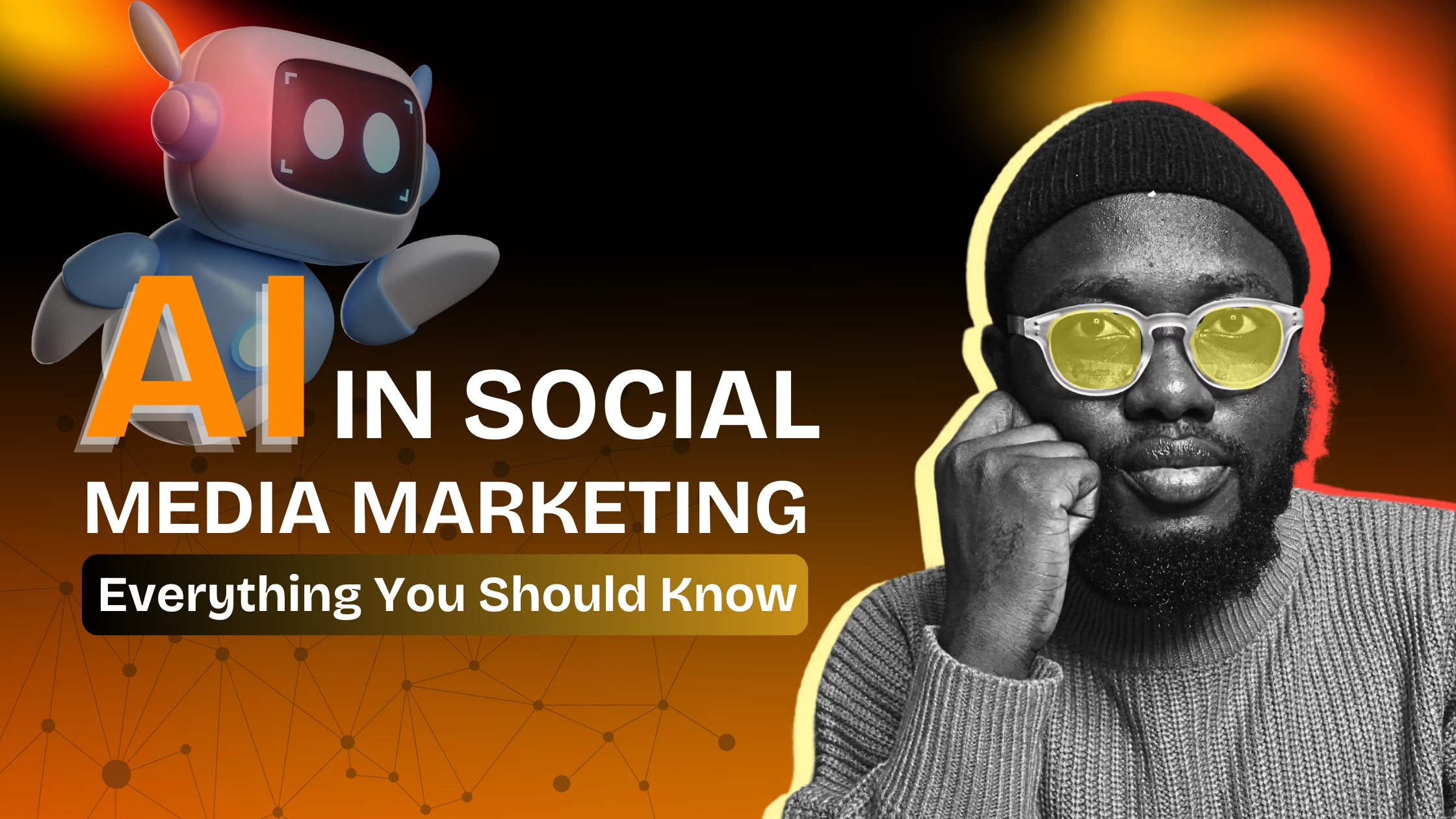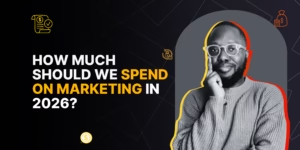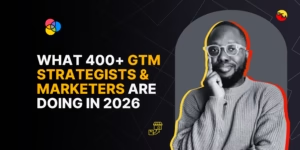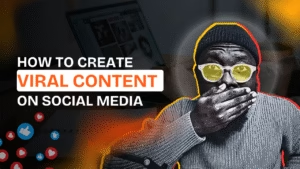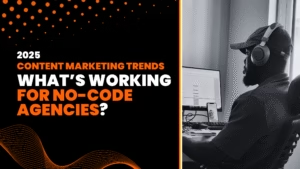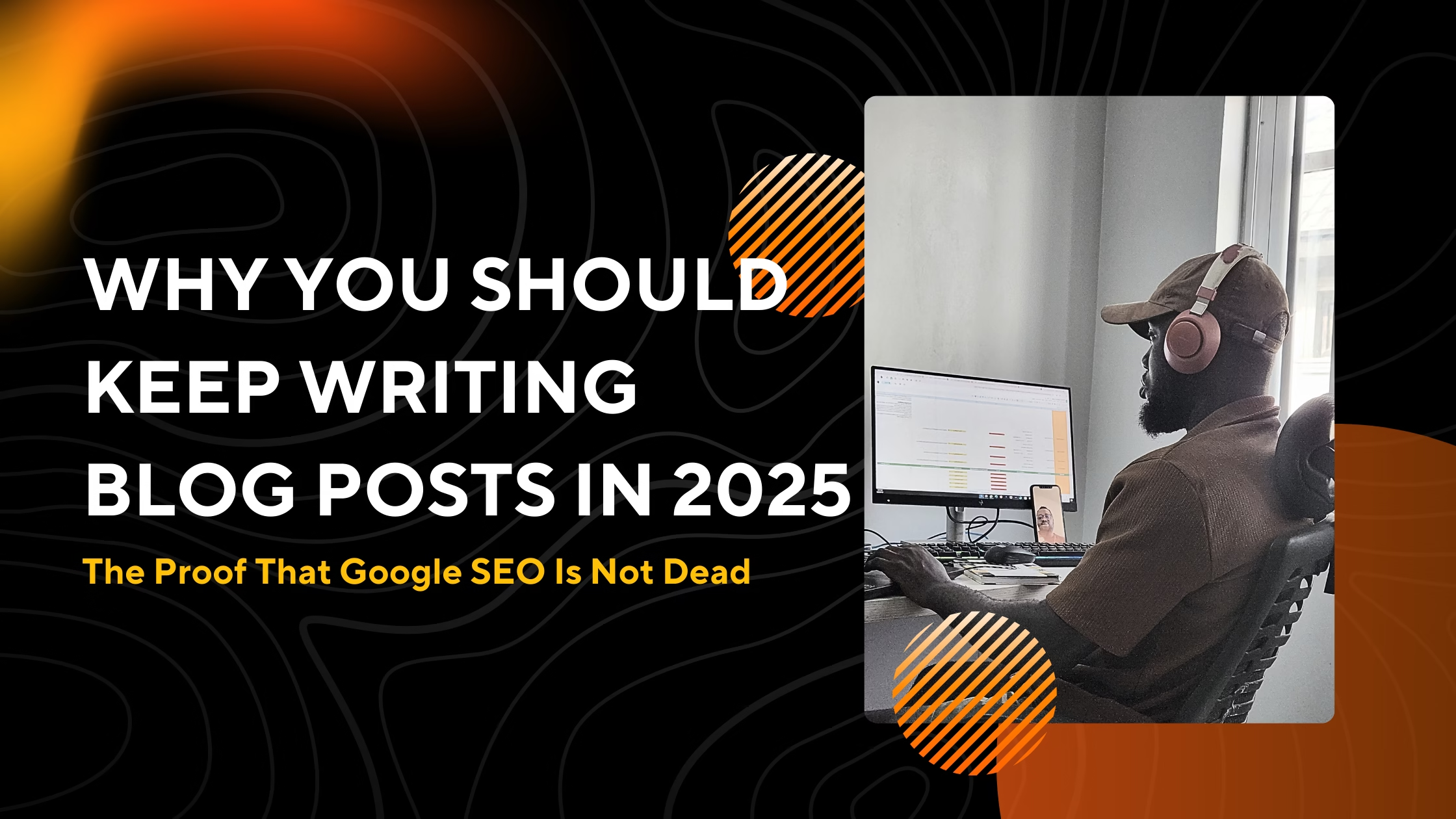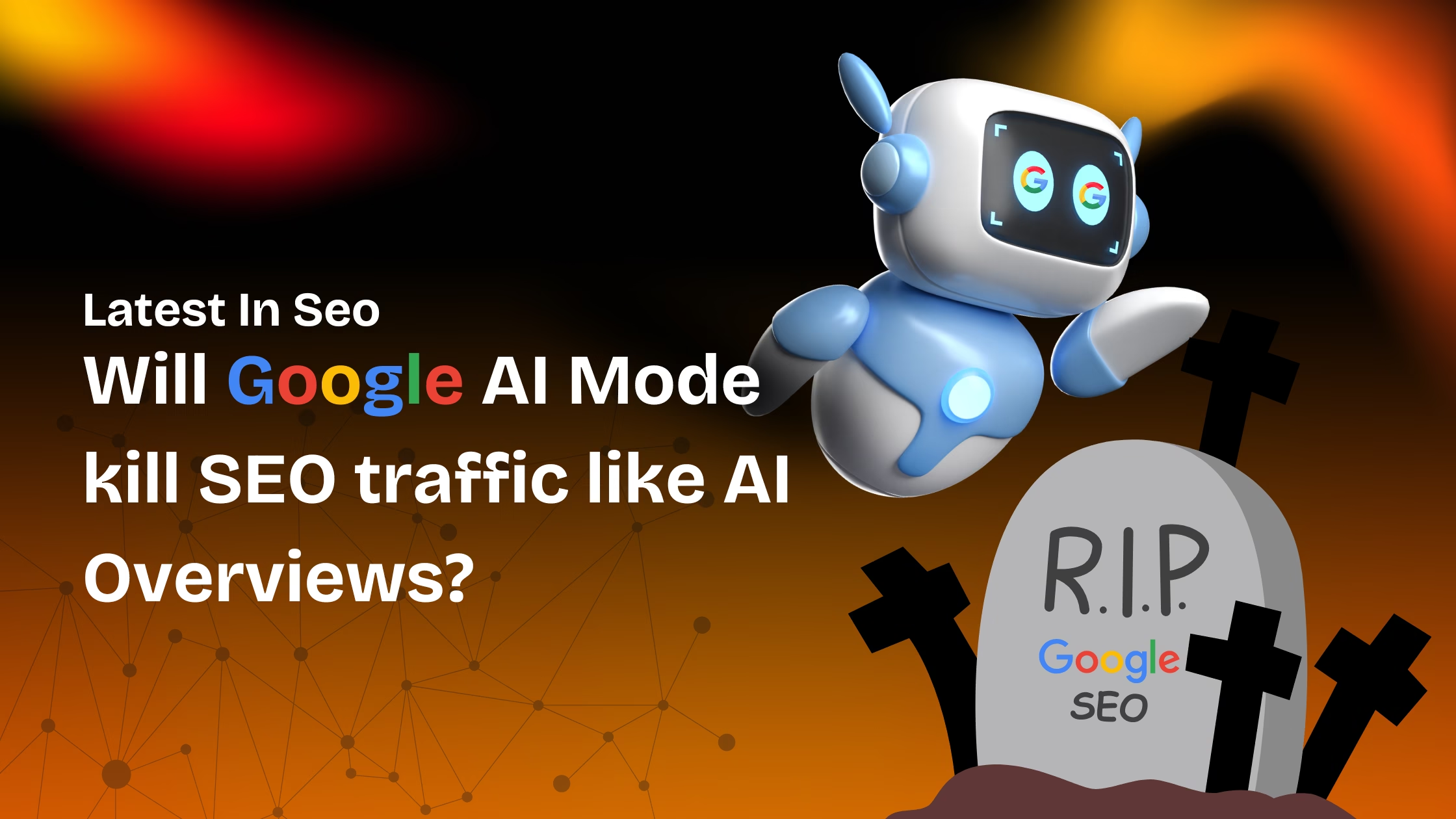The world of marketing has undergone a dramatic shift in just the past two years, largely driven by AI’s relentless contribution to content creation.
Some estimates suggest that AI has pushed the volume of daily published content on the internet from 4 billion to a staggering 6 billion.
With this explosion of content, social media—the primary way we consume it—has become more saturated than ever, which means to stand out, marketers must design smarter campaigns, deliver hyper-personalized content, and try to maximize their efficiency.
And yet, in an ironic twist, the same force flooding our feeds—AI—is also the key to navigating this chaos.
From automating content creation to optimizing ad targeting, interests continue to arise in the future of AI in social media marketing,
So, in this article, we’ll try to break down some of the most fascinating ways AI has wowed me recently when it comes to social media marketing while we also try to get ourselves up to date.
For the sake of our discussion, we’ll highlight only some of the most obvious influences of AI in social media marketing, with a focus on:
1. AI-driven content creation
2. AI Personalized marketing and recommendation systems
3. AI in social listening and social sentiment analysis
4. AI in chatbots and automated customer support systems
5. AI-assisted influencer marketing
6. AI-powered trend analysis and predictive insights, and
7. AI in social media advertising
1. AI-Driven Content Creation: Smarter, Faster, and More Engaging
Gone are the days, when creatives spend hours on end, ideating, structuring, editing or even writing captions on video content
Creating high-quality social media content is no longer just a manual effort.
AI and AI-enabled tools are helping marketers produce text, images, and videos for social media at scale.
So much so that platforms like TikTok, and YouTube now advise that creators and marketers on their platform declare if a piece of content was AI-generated
And, platforms like Linkedin already have the content credentials system integrated that auto-identifies when a piece of content was generated, or created using AI
As far as content creation for social media is concerned, AI has influenced it in 3 ways;
1. AI-Text Generation
2. AI-generated visuals and
3. AI video editing & formatting
1. AI-Text Generation For Social Media:
AI tools like ChatGPT, Deepseek and Jasper are making it easier to write social media captions, blog posts, and ad copy in seconds.
I use these tools to brainstorm content ideas, work on blog content structure, and refine sentences to ensure they’re free of errors.
As a matter of fact, I used chatGPT to help me with the content structure for this blog post.
So, while there are no specific statistics to measure, it’s safe to say that AI or AI tools might have some sort of influence on over 90% of text content published on the internet today.
2. AI-Generated Visuals:
While I have not used platforms like DALL·E and Midjourney independently, I have tested DALL-E via ChatGPT and Meta’s Emu image-synthesis model and yes,
AI can create custom graphics, illustrations, and even social media posts based on text prompts from scratch,
and in some cases, like Meta’s AI, even animate them into simple downloadable videos that can be used for b-rolls or strung together to form standalone social video posts!
3. Automated Video Editing & Formatting
AI-powered video tools like Runway and Descript make editing seamless by automatically generating captions, cutting filler words, and enhancing video quality.
Some other tools, like riverside.fm and capcut, can automatically repurpose long-form videos into short vertical videos for IG reels, YouTube Shorts or TikTok videos.
2. Personalized Marketing & Targeting: Delivering the Right Content to the Right Audience
The days of generic ads and one-size-fits-all content are gone.
With the explosion of the volume of content published daily thanks to AI, social media platforms must provide better personalization to recommend content to users and retain them on their platforms
But more importantly, these personalization features help them retain advertisers who need to serve ads to relevant audiences
So, as far as personalization is concerned, AI is redefining social platforms from 3 core positions.
1. Hyper-personalized content for each platform user
2. Personalizing ad creatives
3. Recommendation engines, even with profiles browsing incognito.
1. Hyper-Personalized Content
Beyond basic demographic information, more social platforms are using AI to analyze user and, user group behaviour to tailor content recommendations and social media ads, such that advertisers can get the best ROI from their social ad platform
2. Dynamic Ads
Meta’s Facebook and Instagram AI can help social advertisers adjust ad creatives based on what their target audience prefers and their engagement patterns.
3. AI-Powered Recommendations
TikTok’s For You Page and YouTube’s browse page are prime examples of AI-driven content curation, and personalization systems keeping users engaged for hours.
Collaborative Filtering— analyses user preferences and similarities to recommend content that other similar users have enjoyed.
Content-Based Filtering—suggesting content similar to what a user has previously interacted with.
And, Hybrid Systems, a combination of both, are all AI strategies many social media platforms rely on for more accurate recommendations.
But these recommendations aren’t just limited to content. They go as far as suggesting people to follow, groups to join, and even products to buy—especially on platforms like TikTok, where deep e-commerce integrations make AI-powered recommendations even more powerful.
Related: What Is Content-Based Filtering
A fourth core position where AI might be influencing social media soon is Personalized User Experiences Beyond Content and Ads:
This goes beyond just the content you see and the ads you’re served, and includes:
- Personalized Notifications: where AI can determine the optimal time and frequency to send notifications, as well as the most relevant notifications to send to each user.
- Personalized Platform Layouts/Features: Some platforms are starting to experiment with AI to change the layout or features that are most prominent to a user, based on their individual usage and preferences.
- Personalized Search Results: AI tailors search results within the platform based on user history, preferences, and context, and finally,
- Personalized Customer Support: where AI-powered chatbots and virtual assistants provide personalized support experiences, addressing individual user needs and issues.
This is about creating a holistic, personalized experience for each user, from the moment they log in to each social media platform, to the moment they log out.
3. AI in Social Listening & Sentiment Analysis
Understanding your audience’s thoughts about your brand (or competitors) is crucial.
AI-driven social listening tools provide real-time insights.
Real-Time Brand Monitoring
While researching tools like Hootsuite Insights, and how they track brand mentions, industry trends, and customer sentiment, I discovered how the use of AI in social listening can help you go beyond simply counting keyword mentions and can go further to;
understanding the context surrounding your mention,
identifying whether you have a positive, negative or neutral sentiment and even.,
detect if nuanced language or sarcasm is being used when your brand is mentioned
Competitive Analysis
AI can help your brand analyze competitor strategies, providing insights to refine their approach.
It can also help you track your brand’s share of voice on social media compared to your competitors, provide insights into market positioning, and analyze the effectiveness of competitor’s social media campaigns.
Crisis Management
AI detects negative sentiment before it escalates, allowing brands to respond proactively.
Related: 10 ways AI social listening tools help your brand
4. AI Chatbots & Customer Support: 24/7 Engagement Without the Hassle
The most prominent advantage of AI chatbots in social media marketing is their 24/7 availability.
This has revolutionized how brands interact with their audience, making customer service seamless and efficient.
While early chatbots were basic, modern AI chatbots can personalize interactions based on user data and past interactions.
Also, where provided with access to such information, they may also remember customer preferences, purchase history, and previous conversations, and use them to surprise customers and personalize responses within their conversations.
Conversational Commerce
Over the past few years, I’ve seen several brands -both Nigerian and non-Nigerian- using platforms like WhatsApp Business and Messenger enabled with AI chatbots to assist customers with their purchases, support and recommendations.
Smart Replies
AI-generated response suggestions speed up engagement in DMs and comments.
Even when engaged by human agents, AI chatbots may assist these agents with smart replies, which helps them to access personalization information faster, and ensure consistent brand messaging across all customer interactions.
5. AI in Influencer Marketing: Smarter Collaborations & ROI Predictions
I wrote an article some time ago about virtual/AI influencers and how they may take over the influencer marketing space.
If nothing, one thing is clear: AI if used properly, is making influencer marketing more data-driven and less of a guessing game.
So, brands that leverage AI can gain a competitive advantage by identifying the most effective influencers, predicting campaign ROI, and detecting fraudulent influencers.
Influencer Discovery
AI-powered influencer marketing tools like Hootsite and Sprout Social can analyze engagement and audience authenticity to automate the process of finding influencers for your brand
They can analyze your target audience’s demography and psychographic interests, values and behaviours, explore and analyze influencers that publish content that aligns with your brand and identify the connections/influence of specific influencers within several communities that your brand may be targeting.
Related: Sproutsocial: AI Influencer Marketing
Performance Prediction
AI estimates potential ROI before committing to influencer collaborations.
Fraud Detection
AI flags influencers with fake followers, such as is recently seen in Instagram’s system for detecting fake profiles, and identifies inauthentic engagement, saving brands from wasted investments.
6. AI-Powered Trend Analysis & Predictive Insights: Staying Ahead of the Curve
AI-powered trend analysis involves identifying patterns to predict new trends in areas like consumer behavior, market research and search platforms like Google via Google trends have been using similar systems.
However, Social media trends are also moving fast, and AI can help social media marketers keep up.
Trend Forecasting
A few places I’ve personally seen AI being used to identify social trends is in TikTok’s creator search insights tool and Google Trends for YouTube
AI systems detect emerging search phrases, viral challenges, hashtags, trending audio and topics before they peak, enjoining creators on the platforms to participate.
Best Posting Times
AI tools analyze past performances, times your audience is most active and online to recommend optimal posting schedules.
7. AI in Social Media Advertising: Smarter, More Efficient Ad Campaigns
AI is optimizing social media advertising like never before.
Smart Bidding
Google, Meta, and TikTok Ads use AI to adjust bids in real-time for maximum ROI.
Automated Ad Copy & Creative
AI generates headlines, descriptions, and even short video ads.
Lookalike Audiences
AI finds potential customers who resemble existing high-value audiences.
8. AI & Social Media Security: Fighting Spam, Bots, and Misinformation
Security and content integrity are major concerns, and AI is playing a big role in maintaining them.
Spam & Bot Detection
AI identifies fake accounts and spammy behaviour, keeping platforms clean.
Misinformation Control
AI-powered fact-checking tools help curb the spread of fake news.
Content Moderation
Platforms like YouTube and Instagram use AI to flag harmful or inappropriate content.
9. AI in Social Commerce: Shopping Experiences Powered by AI
AI is turning social media into an even bigger e-commerce powerhouse.
Shoppable Posts & AI-Powered Recommendations
AI suggests products in real time based on browsing and purchase history.
AI-Powered AR Try-Ons
Snapchat and Instagram allow users to virtually try on makeup, clothing, and accessories before purchasing.
Final Thoughts: The Future of AI in Social Media Marketing
AI isn’t just a trend in social media marketing—it’s the future.
As AI continues to evolve, it will unlock even more innovative ways to engage audiences, drive sales, and optimize campaigns.
Whether you’re a brand, a marketer, or an influencer, embracing AI-driven tools will give you a serious edge.
What AI-powered tool has transformed your social media marketing strategy the most? Let’s discuss in the comments!
